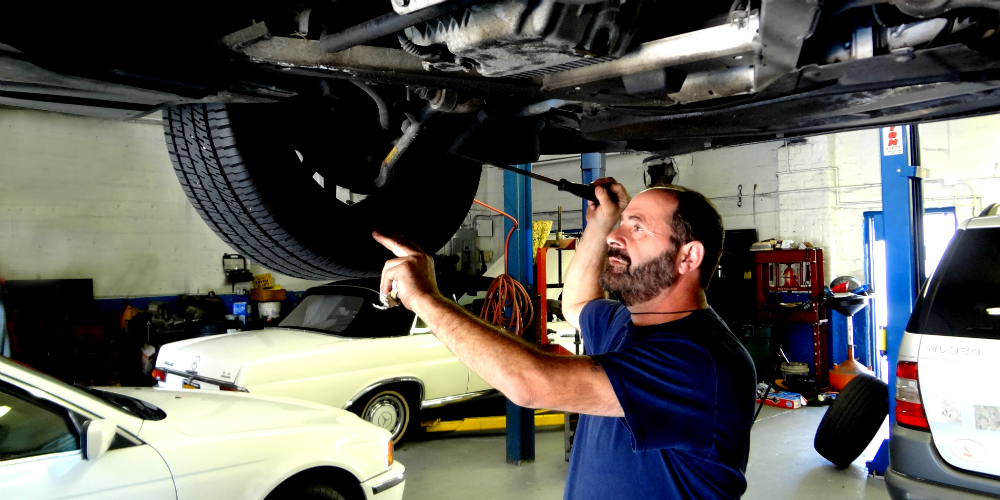All Categories
Featured
Routine engine tune-ups are necessary for keeping your lorry's performance, enhancing fuel efficiency, and extending its lifespan. Whether you're a skilled auto proprietor or a newbie, recognizing the essential aspects of an engine tune-up can aid you maintain your cars and truck running smoothly for many years. Here are some important tips to lead you through the process.
- Adjustment the Flicker Plugs. Ignition system are little however magnificent components that play a vital duty in firing up the fuel-air mixture in your engine. With time, they can wear or become fouled, bring about bad engine performance, minimized fuel effectiveness, and difficult begins.
During a tune-up, examine your ignition system for wear and change them as required. For many cars, ignition system ought to be replaced every 30,000 to 100,000 miles, relying on the kind and product. Fresh ignition system make certain effective burning and smoother engine operation.
- Inspect and Replace the Air Filter. The air filter is your engine's first line of protection versus dust, debris, and various other impurities. A clogged or filthy air filter can restrict air movement, triggering your engine to work tougher and eat even more fuel.
Inspect your air filter throughout a tune-up and replace it if it's filthy or past its advisable solution interval. A clean air filter enhances engine performance and improves gas economic situation.
- Examine the Gas System. Gradually, your fuel system can collect dirt and carbon down payments, minimizing engine efficiency and gas effectiveness. Cleansing the fuel injectors and gas lines throughout a tune-up helps preserve proper gas shipment and combustion.
You can use a fuel system cleaner or have a professional mechanic do a much more comprehensive cleansing. This action is specifically useful for older cars or vehicles often driven in stop-and-go traffic.
- Evaluate the Belts and Pipes. Belts and hoses are essential for numerous engine features, such as running the alternator, water pump, and cooling. Throughout a tune-up, look for cracks, fraying, or signs of endure these elements.
Replace any type of worn-out belts and tubes to stop potential failures. A busted belt or dripping pipe can bring about engine getting too hot or loss of power, so resolving these concerns quickly is vital.
- Replace the Engine Oil and Oil Filter. Engine oil is essential for lubing relocating parts, reducing friction, and controling engine temperature. Gradually, oil becomes infected and sheds its effectiveness.
As component of a tune-up, replace the engine oil and oil filter. Make use of the kind of oil suggested by your vehicle's producer and stick to the suggested adjustment intervals. Clean oil maintains your engine running smoothly and protects against premature wear.
- Check the Battery and Charging System. A healthy and balanced battery is essential for beginning your car and powering its electric systems. Throughout a tune-up, check the battery's voltage and check the terminals for rust. Tidy the terminals if required and make certain a protected link.
Additionally, test the alternator and charging system to guarantee your battery continues to be billed during procedure. If your battery is weak or old, consider changing it to avoid unanticipated break downs.
- Flush and Re-fill the Coolant. The cooling system controls your engine's temperature, avoiding it from overheating. Old or contaminated coolant can lose its efficiency, causing prospective engine damage.
Throughout a tune-up, flush the old coolant and change it with a fresh mix. Evaluate the radiator, thermostat, and tubes for leakages or damages. Maintaining the cooling system in good problem guarantees your engine runs at the ideal temperature level.

- Address Caution Lights and Uncommon Signs. Modern lorries are geared up with analysis systems that inform you to potential problems with dashboard warning lights. If your check engine light or any type of other advising indications get on, address them during your tune-up.
Furthermore, take notice of unusual signs such as odd sounds, rough idling, or reduced fuel performance. A professional mechanic can detect and fix these issues throughout the tune-up procedure.
- Don't Forget the Exhaust System. Your car's exhaust system gets rid of damaging gases from the engine and makes certain appropriate discharges. Examine the exhaust system for leakages, rust, or damage during a tune-up. A defective exhaust system can impact engine performance and bring about ecological and safety and security concerns.
- Usage High-Quality Components and Fluids. When replacing components or topping off fluids during a tune-up, constantly select high-grade products that meet your automobile's specs. Using below average parts or inaccurate liquids can negatively affect your engine's efficiency and durability.
Final Thought: Routine Tune-Ups Are Trick to Engine Health. Making the effort to tune up your engine ensures it operates successfully, saves fuel, and decreases the threat of failures. Whether you execute these tasks yourself or depend on a relied on technician, regular tune-ups are a financial investment in your lorry's reliability and long life. Comply with these suggestions, and you'll delight in a smoother, extra dependable ride for several years ahead.
Latest Posts
Discover the Perfect Rug for Your Home
Rain Gutter Setup and Maintenance Tips for Illinois Climate
Quick Car Repair Solutions - Reserve Your Spot with Montclare Auto Repair Today
